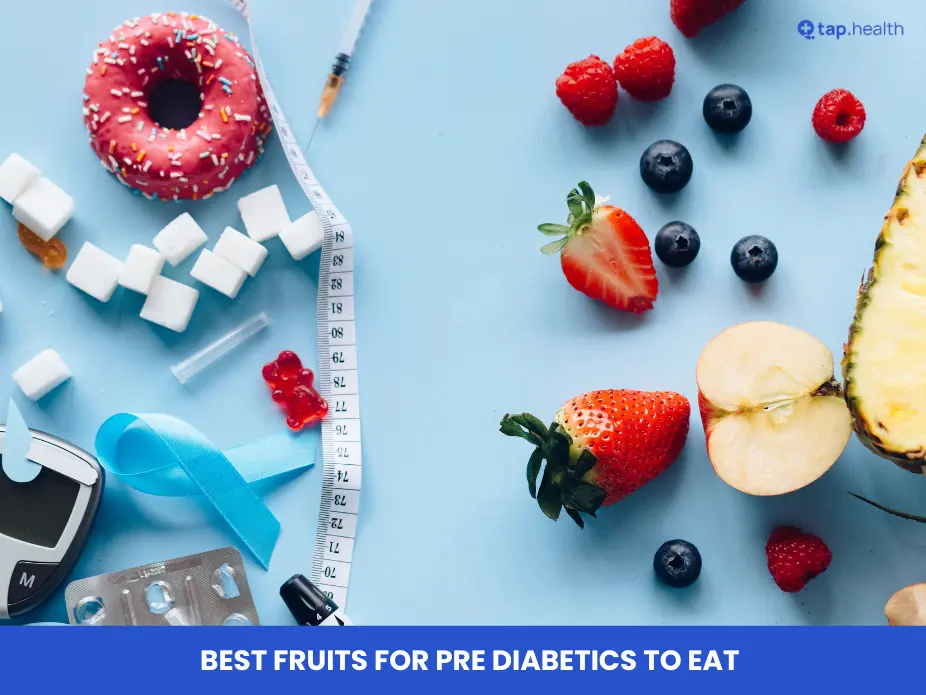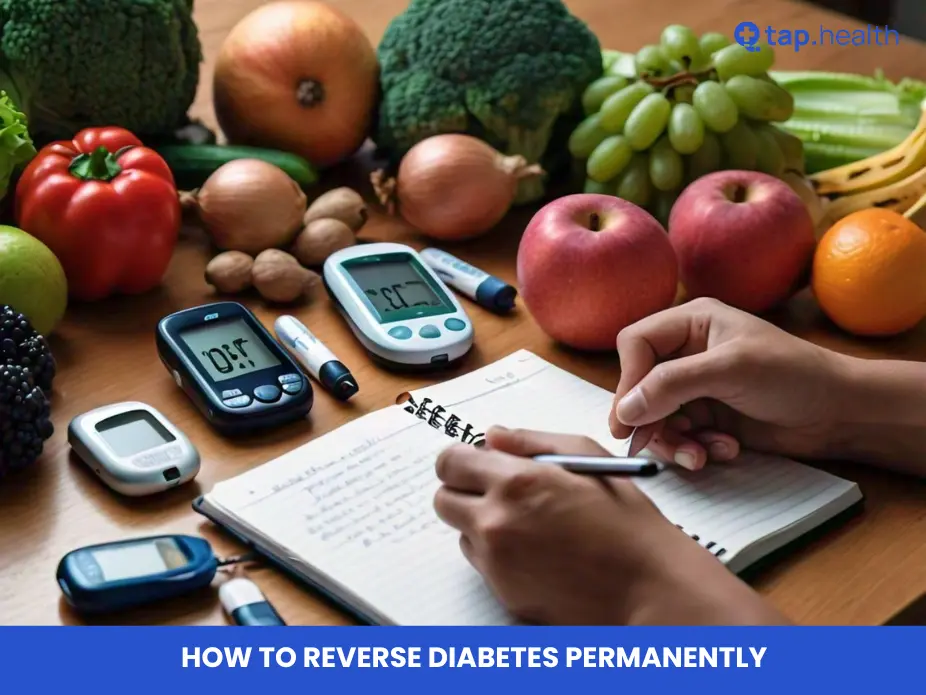Table of Contents
- Wisconsin Woman’s Diabetes Reversal: A Health Transformation
- Reverse Diabetes Naturally: A Wisconsin Woman’s Journey
- Inspired by Wisconsin: Lifestyle Changes Beat Diabetes
- Diabetes Reversal: How One Woman Changed Her Life
- Conquer Diabetes: A Wisconsin Woman’s Inspiring Story
- Frequently Asked Questions
- References
Are you struggling with diabetes and searching for hope? This inspiring story of a Wisconsin woman who reversed her diabetes through significant lifestyle changes is sure to leave you feeling empowered. We’ll explore her journey, uncovering the key strategies she employed to dramatically improve her health. Discover how simple yet powerful changes in diet and activity levels can make a world of difference. Learn more about the lifestyle modifications that led to this remarkable transformation in our feature on Wisconsin Woman Reverses Diabetes Through Lifestyle Changes: Inspiring News.
Wisconsin Woman’s Diabetes Reversal: A Health Transformation
A Powerful Story of Lifestyle Change
Diabetes is a significant global health concern, particularly impacting women. Research shows women with diabetes face a 40% higher risk of heart disease compared to men with diabetes, highlighting the critical need for preventative measures and effective management strategies. This underscores the inspiring story of a Wisconsin woman who successfully reversed her diabetes through dedicated lifestyle changes. Her journey offers invaluable lessons for women in India and other tropical countries, where diabetes prevalence is also rising.
Lessons from Wisconsin: Adapting for Tropical Climates
This Wisconsin woman’s success wasn’t about quick fixes; it was a commitment to long-term dietary and exercise adjustments. She prioritized whole, unprocessed foods, focusing on fruits, vegetables, and lean protein sources – readily adaptable to the diverse and abundant produce found in many Indian and tropical regions. Regular physical activity, even in the form of daily walks or yoga, played a crucial role. This is especially important in hotter climates where intense workouts may be less feasible. Consider adapting exercises to suit the local climate and culture. For more information on achieving permanent remission, check out our article on How to Reverse Diabetes Permanently.
Empowering Women in India and Beyond
The Wisconsin woman’s story is a beacon of hope, demonstrating that diabetes reversal is possible. However, it is crucial to remember that individual needs vary. Seeking guidance from healthcare professionals is essential, especially considering the unique dietary and environmental factors prevalent in Indian and tropical countries. Consult your doctor or a registered dietitian to create a personalized diabetes management plan incorporating culturally appropriate foods and activities. Taking proactive steps towards better health is a powerful investment in your wellbeing. While complete reversal in 21 days might be ambitious, you can learn more about rapid progress in our article, Reversing Diabetes in 21 Days: Is It Possible?
Reverse Diabetes Naturally: A Wisconsin Woman’s Journey
A Story of Hope and Lifestyle Transformation
The staggering cost of diabetes in the U.S.—an estimated $327 billion annually in direct medical costs and lost productivity—highlights the urgent need for effective prevention and management strategies. This inspiring story from Wisconsin offers a beacon of hope, demonstrating the power of lifestyle changes in reversing type 2 diabetes. A Wisconsin woman’s journey showcases how adopting a healthier lifestyle can significantly impact the disease, even reversing its progression. This approach holds particular relevance for individuals in Indian and tropical countries where diabetes prevalence is increasing. For those concerned about developing diabetes, learning about Can I Reverse Prediabetes? Effective Strategies for a Healthier Future is crucial.
Practical Steps for a Healthier Life
This woman’s success wasn’t about magic pills; it was about consistent, mindful changes. She focused on a balanced diet, emphasizing whole grains, fruits, vegetables, and lean proteins—foods readily available in many Indian and tropical regions. Regular exercise, even short walks, became a daily habit. Crucially, she actively managed stress through practices like yoga and meditation, techniques widely embraced in many Indian cultures. This holistic approach is key, particularly considering the unique challenges and cultural contexts prevalent in these areas.
Adapting the Wisconsin Success Story
The key takeaway? Reversing diabetes isn’t just about managing symptoms; it’s about transforming one’s lifestyle. This Wisconsin woman’s experience demonstrates that sustainable changes—incorporating nutritious, locally sourced foods and incorporating culturally relevant fitness regimes—can yield significant benefits. Consider incorporating these principles into your daily routine, adapting them to suit your specific needs and cultural context. Even small, consistent changes can make a big difference in your overall health and well-being. Let this inspirational journey serve as a catalyst for your own health transformation. Take charge of your health today! The challenges of managing diabetes can change as we age, so it is important to consider the information in Managing Diabetes as You Age: Challenges and Solutions.
Inspired by Wisconsin: Lifestyle Changes Beat Diabetes
The Power of Prevention
Studies show that a significant portion of Type 2 diabetes cases – up to 80% – can be prevented or delayed through adopting healthy lifestyle changes. This is incredibly encouraging news, especially for populations in India and tropical countries where diabetes is increasingly prevalent. A Wisconsin woman’s successful journey, reversing her diabetes through lifestyle modifications, serves as a powerful example of what’s achievable. Her story highlights the potential for positive change regardless of geographic location or pre-existing conditions. This emphasis on lifestyle changes offers a particularly hopeful message given the high rates of diabetes in many parts of the world.
Adapting Strategies for Warm Climates
While the Wisconsin woman’s experience provides inspiration, adapting these changes to the specific challenges of Indian and tropical climates is crucial. Consider incorporating locally sourced fruits and vegetables rich in fiber and antioxidants into your diet. Focus on managing your blood sugar levels through regular, smaller meals throughout the day, rather than large, infrequent ones. Regular physical activity is key, and choosing activities that are suitable for warm weather, such as early morning or evening walks, or water-based exercise, will be more sustainable.
Embracing a Healthier Future
The success stories emerging, like the Wisconsin woman’s, demonstrate that regaining control over your health is entirely possible. By embracing a holistic approach that focuses on nutrition, regular physical activity tailored to your climate, and stress management, you can significantly reduce your risk of developing type 2 diabetes or effectively manage the condition if you already have it. Making these lifestyle changes empowers individuals to take charge of their health and build a brighter future, regardless of their geographic location. Prioritizing these simple yet impactful steps can lead to a healthier and happier life, improving overall well-being within Indian and tropical communities. For those interested in exploring how technology can further assist in diabetes management, How Can New Technological Advances Improve Diabetes Lifestyle? offers valuable insights.
Diabetes Reversal: How One Woman Changed Her Life
The global rise in diabetes is alarming. The World Health Organization reports a staggering increase from 200 million people living with diabetes in 1990 to 830 million in 2022. This underscores the urgent need for effective prevention and management strategies, particularly in regions like India and tropical countries where diabetes prevalence is high. A Wisconsin woman’s inspiring journey offers a powerful example of how lifestyle changes can dramatically impact this chronic condition.
Her Transformation: A Testament to Lifestyle Medicine
This woman’s success story highlights the transformative power of adopting a holistic approach to health. She reversed her diabetes not through medication alone, but by focusing on a comprehensive lifestyle overhaul. This included a significant dietary shift, focusing on fresh, whole foods common in many Indian and tropical diets, like fruits, vegetables, and legumes. She also incorporated regular physical activity – crucial for managing blood sugar – choosing activities easily adaptable to tropical climates like yoga and swimming. Crucially, she prioritized stress management techniques, recognizing its significant role in diabetes management, utilizing practices prevalent in many Indian cultures, like meditation and mindfulness.
Actionable Steps for a Healthier Life
The Wisconsin woman’s experience offers valuable lessons for individuals in India and tropical countries. Prioritizing whole foods rich in fiber and nutrients, incorporating regular physical activity tailored to the climate, and managing stress effectively through mindful practices are essential steps. Even small changes can make a significant difference. Considering the time commitment involved, you might wonder How Long Does It Take to Reverse Type 2 Diabetes?. Consulting with healthcare professionals and nutritionists familiar with regional diets and health conditions is vital for creating personalized plans. Small steps toward a healthier lifestyle can lead to substantial improvements in blood sugar control and overall well-being, potentially reversing diabetes. Remember, it’s a journey, not a race. Start small, stay consistent, and celebrate your progress. It’s also important to understand the nuances of different types of diabetes; for instance, you may be curious about the possibility of reversing type 3 diabetes, and can find more information in this article: Can Type 3 Diabetes Be Reversed?
Conquer Diabetes: A Wisconsin Woman’s Inspiring Story
A Global Health Crisis with Local Solutions
Diabetes represents a significant global health burden, costing the world economy a staggering $760 billion annually. This staggering figure underscores the urgent need for effective prevention and management strategies, particularly in regions like India and other tropical countries where diabetes prevalence is rising. The inspiring story of a Wisconsin woman who reversed her diabetes through lifestyle changes offers a beacon of hope and practical guidance for individuals worldwide. Her journey highlights the power of proactive choices in mitigating this chronic condition.
From Diagnosis to Transformation: A Powerful Narrative
This Wisconsin woman’s successful battle against diabetes serves as a testament to the efficacy of holistic lifestyle interventions. Her journey, though unique to her personal circumstances, offers valuable lessons applicable across diverse demographics and geographical locations. By focusing on dietary changes, regular exercise, and stress management, she effectively improved her blood sugar control and significantly reduced her dependence on medication. This success demonstrates that diabetes management doesn’t solely rely on pharmaceuticals; it can be significantly influenced by conscious lifestyle choices. For more specific tips, check out 10 Proven Tips for Effective Diabetes Management.
Actionable Steps for a Healthier Future in India and Tropical Countries
The Wisconsin woman’s experience highlights the importance of adopting a proactive approach to diabetes prevention and management. For individuals in India and other tropical countries, this means prioritizing a diet rich in fruits, vegetables, and whole grains while limiting processed foods, sugar, and unhealthy fats. Regular physical activity, even a moderate amount each day, can greatly benefit those at risk. Furthermore, stress management techniques like yoga and meditation can play a crucial role in maintaining overall well-being and promoting healthy blood sugar levels. Remember that a personalized diabetes control plan can be incredibly effective. This holistic approach, tailored to suit individual needs and cultural contexts, holds the key to successfully managing diabetes and improving quality of life across diverse populations.
Frequently Asked Questions on Wisconsin Woman Reverses Diabetes Through Lifestyle Changes
Q1. Can lifestyle changes really reverse type 2 diabetes?
While individual results vary, this Wisconsin woman’s story and others show that significant lifestyle changes, including diet, exercise, and stress management, can lead to the reversal of type 2 diabetes in some people. It’s important to consult with a healthcare professional.
Q2. What kind of lifestyle changes were involved?
The woman focused on a diet of whole, unprocessed foods, regular, climate-appropriate exercise, and stress management techniques. The specific types of food and exercise should be tailored to individual needs and local contexts.
Q3. Is this approach suitable for people in all regions?
The principles are applicable globally, but the specifics need adaptation. The diet should utilize readily available foods in the local area, and exercise should be adjusted to suit the climate. Consulting a healthcare professional is crucial.
Q4. What are the potential challenges in making these lifestyle changes?
Sustaining significant lifestyle changes can be difficult. Challenges may include adapting dietary habits, finding time for exercise, managing stress effectively, and overcoming potential cultural barriers. Support from healthcare professionals and community resources is beneficial.
Q5. Where can I learn more about managing or reversing type 2 diabetes?
It is essential to consult with your healthcare provider or a registered dietitian to create a personalized plan for managing or reversing type 2 diabetes. They can help you determine the best approach for your specific situation and health needs.
References
- A Practical Guide to Integrated Type 2 Diabetes Care: https://www.hse.ie/eng/services/list/2/primarycare/east-coast-diabetes-service/management-of-type-2-diabetes/diabetes-and-pregnancy/icgp-guide-to-integrated-type-2.pdf
- What is Diabetes: https://www.medschool.lsuhsc.edu/genetics/docs/DIABETES.pdf



